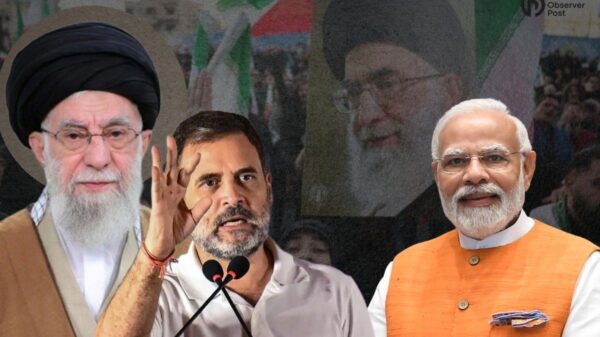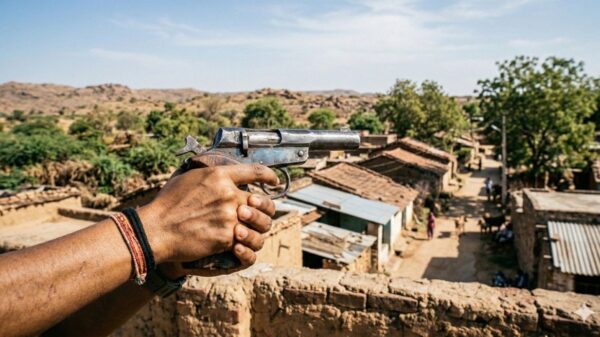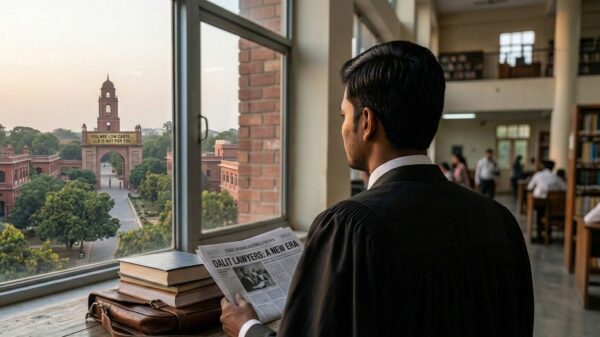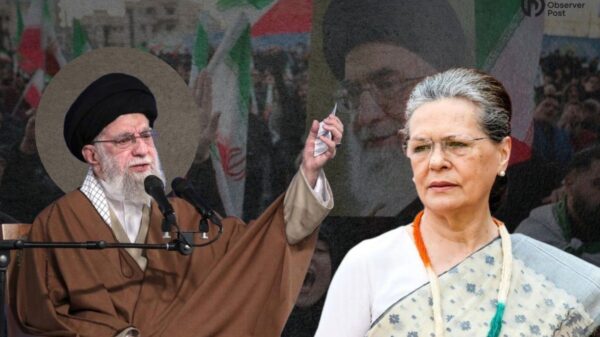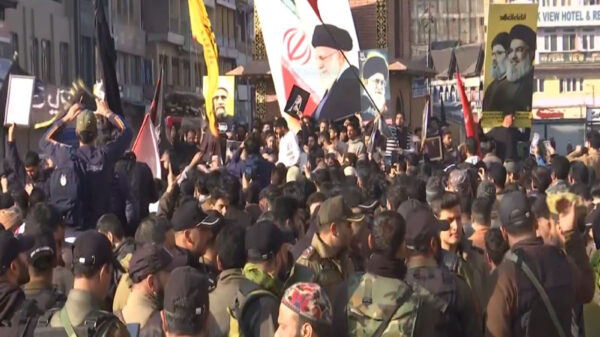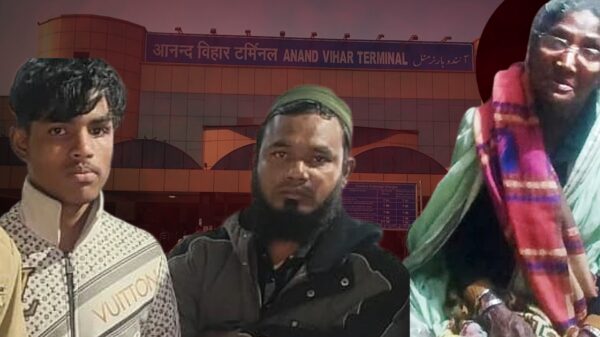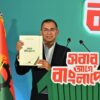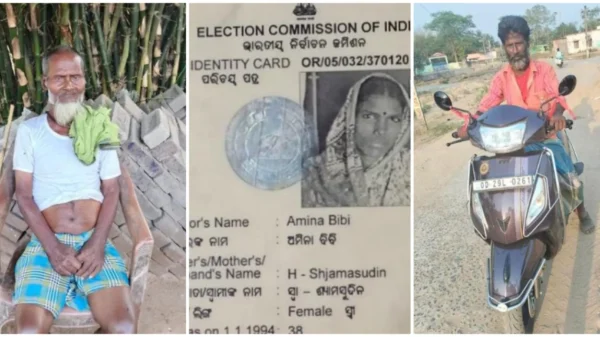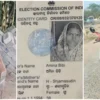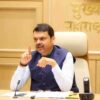By: Nazimuddin Farooqi | Senior Analyst
Three major tumultuous events occurred worldwide in the early part of this month (July 31 to August 15). On the night of July 31, 2024, Hamas leader Sheikh Ismail Haniyeh was assassinated, and on August 5, the U.S. stock market crashed, wiping out $4 trillion from global investors. On the same day, the former Prime Minister of Bangladesh Sheikh Hasina was forced to resign and flee the country. It is said that Sheikh Hasina’s government was overthrown due to successful student strikes. Nobel Laureate Muhammad Yunus has been appointed interim president, claiming that Bangladesh has gained new freedom.
Since its independence, Bangladesh has faced several such political emergencies, necessitating martial law due to anarchy, unrest, violent protests, or military coups. The military governed until political conditions stabilized. Sheikh Hasina was elected Prime Minister four times but was notorious for her severe oppression and persecution of opposition leaders and activists during her tenure. It was widely known that she consistently secured a majority in the 300-member Bangladeshi parliament through electoral fraud, bogus voting, and manipulation with external agencies’ help.
In the 2001 general elections, Sheikh Hasina’s Awami League secured 37.44% of the votes, winning 146 seats, while Khaleda Zia’s BNP obtained 33.61% of the votes, winning 116 seats, and Jamaat-e-Islami garnered 8.61% of the votes, winning 3 seats. In the 2018 general elections, all political parties boycotted the elections against the government’s restrictions. The Awami League’s Grand Alliance secured 234 seats (72.14% of the votes) and HM Ershad’s Jatiya Party (JPE) won 34 seats (7% of the votes). Khaleda Zia and Jamaat-e-Islami boycotted these elections completely.
In the early part of 2024, on January 7, general elections were held again, with many political parties banned and all political parties boycotting the elections. With India’s help, Sheikh Hasina’s alliance again secured 257 seats (74.63% of the votes) through electoral fraud, and JPE won 26 seats (5.22% of the votes).
Sheikh Hasina had strong backing from Delhi. Accusations against her were not just limited to electoral fraud; her ruling party’s ministers, MPs, and local leaders were openly involved in extreme corruption, looting, and plundering, which disillusioned the public. She governed with an iron fist, depriving the opposition of their political and constitutional rights, and taking severe revenge against opposition leaders. It was an open secret that extensive support and assistance from Delhi’s political, diplomatic, and military planning made Sheikh Hasina a powerful dictator in a democracy. The 170 million people of Bangladesh were so tightly controlled by India that the parliament, president, and prime minister couldn’t drink a glass of water without India’s permission.
Bangladesh’s politics was neither allowed to become secular, liberal, nor Muslim-friendly. In the name of political, economic, military, and strategic cooperation, Bangladesh was practically kept as a deliberately free slave. The entire politics, government, military, and economy of Bangladesh were in the hands of a high-ranking RAW official. It is said that on August 5, this official took Sheikh Hasina directly to Delhi.
43 years after the establishment of Bangladesh, 12 elderly leaders of Jamaat-e-Islami were hanged between 2014 and 2017, as a punishment for their opposition, which was Sheikh Hasina’s worst brutal decision.
Three months after the January 2024 elections, on April 4, the “India Out” campaign began, followed by nationwide violent protests against job dismissals and the cancellation of reservations for the families of the 1971 liberation war martyrs. Many internal, regional, and international factors were involved in this successful protest, making it incorrect to say that the emergency situation in Bangladesh was due to protests by any single religious group or political party. Over 300 protesters were killed in police firing. Unverified reports suggest that thousands of protesters were killed across the country. This forced junior military officers to intervene on their superiors’ orders, compelling Sheikh Hasina to resign and leave the country, dissolving the government and parliament. This is the scenario according to the news published in the mainstream media; additionally, there were several internal secret dealings with global powers that led to discontent. In her final speech, Sheikh Hasina hinted that the white man was conspiring to overthrow our government. Observers at the time understood to some extent that a significant political change was imminent in Bangladesh, and a regime change was about to occur.
It has been said in journalistic circles that the U.S. was very displeased with Bangladesh due to its closeness with China, financial aid, and other linguistic, cultural, and economic mutual agreements. The U.S. needed a free zone to establish its airbase in the Bay of Bengal to keep an eye on China. The U.S. has had a longstanding plan to create a small Christian state there. The U.S. repeatedly asked Bangladesh to hand over Saint Martin’s Island, located just 10 kilometers from Chittagong in the sea.
Sheikh Hasina’s corrupt government, running on Delhi’s oxygen, angered the U.S. by refusing to hand over Saint Martin’s Island. The U.S. considered several options, such as overthrowing Sheikh Hasina’s government through a bloody military coup or forcing her out through violent public protests and military action. This was relatively easy for the U.S. due to its close and deep diplomatic and regional relations with India. The U.S. has always prioritized India as a regional power against China. A powerful U.S. secretary, “Donald Lu,” famous for regime changes and overthrowing governments worldwide, played a crucial role in toppling governments in several countries. His visit to any country often signified impending significant political or military changes.
On May 30, 2024, “Donald Lu” was in Dhaka, where he finalized the plan to depose Sheikh Hasina and exile her, assigning responsibilities to relevant officials and agents. He then visited India during the election results and returned to the U.S. Observers are keen to see what “Donald Lu” plans next.
According to a plan, India was prepared to offer asylum to its long-time ally Sheikh Hasina with full honours. How could a deposed prime minister fleeing from one country land at another country’s air force base without high-level government permission and arrangements?
The U.S. achieved multiple objectives with one stroke. They used peer pressure groups and religious, secular parties and entities for violent protests, satisfying everyone by showing that the people successfully ousted Sheikh Hasina.
According to Al Jazeera News, millions of people are protesting on Dhaka streets against any military government establishment. Practically, Dhaka is currently under Jamaat-e-Islami Bangladesh’s control. Jamaat-e-Islami, having suffered political and military persecution for decades, is now openly demonstrating its public power, and its offices nationwide have reopened.
On the other hand, an important news item published in a daily on August 7, 2024, mentioned that Maulana Rafiq Islam said that Islamic political leaders are being indiscriminately fired upon in Kashimpur jail, killing many prominent leaders.
The U.S. and India have played this political regime change very cautiously. There is a strong possibility that global powers will strive to give secular or liberal forces a chance at the right time while keeping Islamist political and religious parties away from the government. Jamaat leaders and workers are jubilant, but most still fail to comprehend the real internal secret interventions and manipulations.
The Indian media, particularly the “Godi Media,” are propagating two narratives. Some claim that China’s and Pakistan’s ISI organized a joint operation and rebellion. Other media groups report that India’s RAW agency fueled massive protests, calling Sheikh Hasina back to India.
To understand the current situation in Bangladesh, it is necessary to comprehend the dangerous changes and plots behind the scenes. Was this a genuine internal revolution, or did global and regional powers play a role?
On July 19, 2023, at the Taj Santacruz Hotel in Mumbai, I had a two-hour-long direct conversation with the then Bangladeshi Finance Minister Mr. Mustafa Kamal, his Principal Secretary Parvez Ahmed, and a personal physician and advisor during a dinner. A total of seven people were present at the meeting. Several startling revelations emerged, including some insights that will help readers understand the issue in the correct context. One of the guests said that a high-powered Bangladeshi government delegation went to the White House for a meeting. The guest said that they were treated with humiliation.
An American undersecretary said, “You are running a people’s government through bogus voting. Your government is highly corrupt. We cannot help you. Go back to India and take the necessary political steps as advised by them.”
The guest said that they returned with their heads down and resumed our requests to New Delhi. Another guest said that Awami League ministers and leaders are busy looting public wealth, and no one cares about the country. The entire country’s dependence is on India.
“From drinking water and rice to electricity, we have to get everything from India. A total of 6052 different items and products are exported from India. Bangladesh fulfils its needs through annual exports of 12 billion dollars from India. With the help of India and China, Bangladesh has certainly achieved rapid development, but this development is like borrowed progress. If we look at it honestly, we are trapped and compelled by India. Even a minor governmental-level change, transfer, or any kind of planning requires approval from Delhi. For the last several years, the entire Bangladeshi government, its officers, and secretaries have to refer to India’s Ministry of External Affairs for any action or statement. India is fully exploiting us. Sheikh Hasina is not a prime minister; she is just a puppet. She has destroyed the country’s honour and pride. We are practically the 29th state of India, without an official announcement. It is no longer possible to function like this.”
Even now, the entire situation, power, and politics are fully controlled by India. Sheikh Hasina is only a temporary face for some months or days. Prime Minister Narendra Modi and his strategic advisors planned this. The real rulers are in Delhi. Bangladesh’s people, government, and military cannot breathe without India’s permission.
Bangladesh’s media outlets are continuously publishing news of India’s utmost generosity, claiming that New Delhi is prepared to provide 20 billion dollars in urgent aid to Bangladesh. Indian media is discussing the tragic story of their long-time ally and friend Sheikh Hasina. India’s social media is abuzz with a flood of comments about the real situation.
The top news in a Bangladeshi media outlet on August 8, 2024, was that Maulana Rafiq Islam stated in an exclusive conversation that he was also receiving information that 12 senior Islamic political leaders had been killed in Kashimpur jail. He mentioned that 18 prominent figures, including Maulana Delwar Hossain Sayedee, Abdul Quader Molla, and Golam Azam, were previously executed by the Bangladesh government.
This new era of freedom for Bangladesh is likely temporary and superficial. Many factors suggest that secular and liberal forces will prevail at the right moment, and all religious, political, and military powers will strive to prevent Islamist or extremist elements from gaining a foothold. The future political and social landscape of Bangladesh remains uncertain.
The information presented in this article represents the personal viewpoints of the author and does not necessarily reflect the opinions of The Observer Post.






